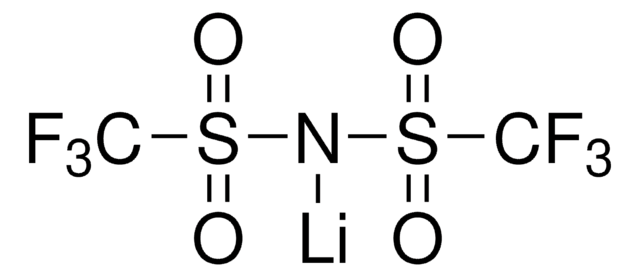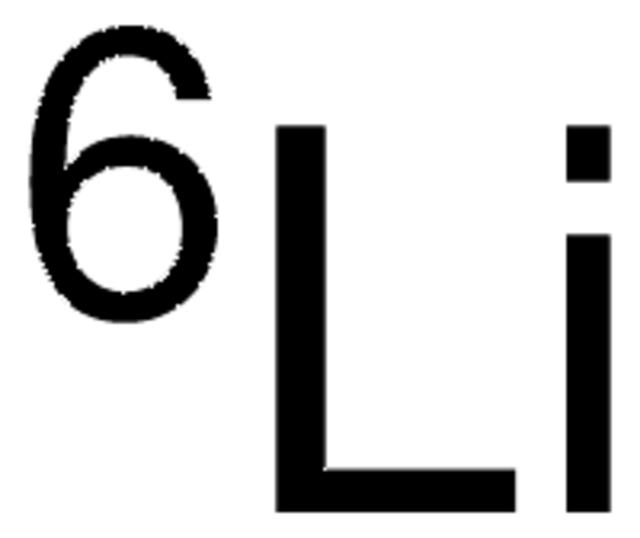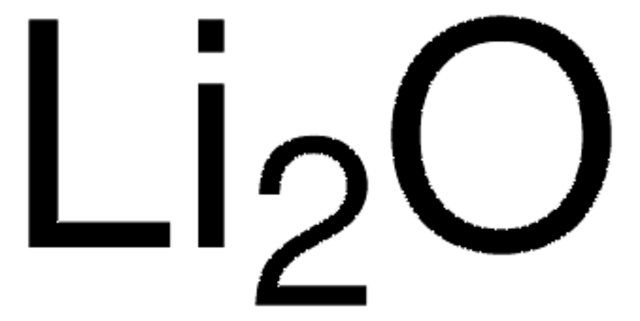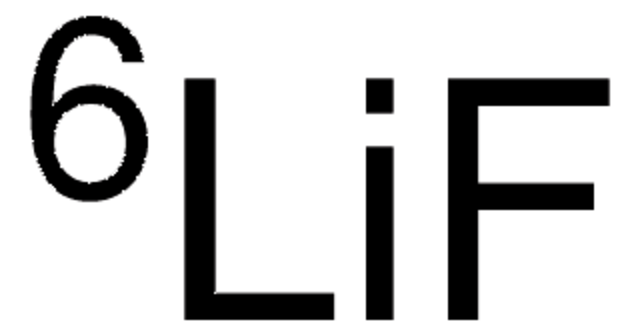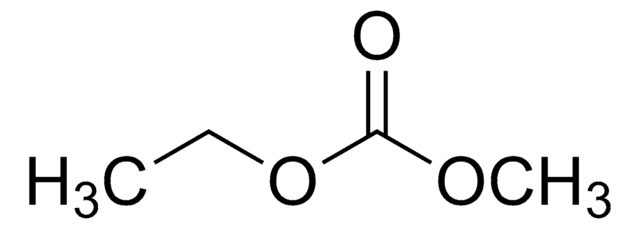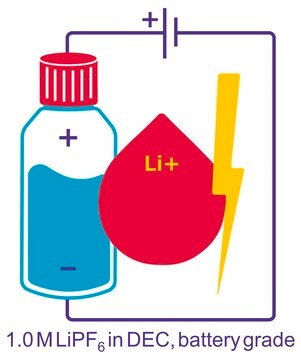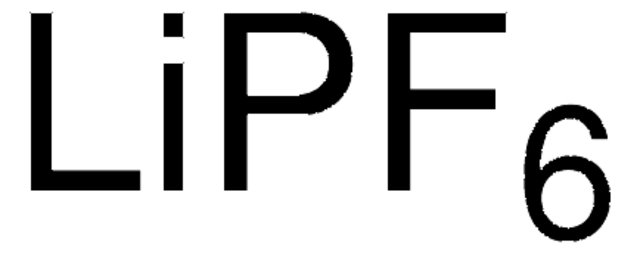809403
Lithium hexafluorophosphate solution
in ethylmethyl carbonate, 2.0 M LiPF6 EMC, battery grade
Sinonimo/i:
2M LiPF6 EMC
About This Item
Prodotti consigliati
Grado
battery grade
Livello qualitativo
Stato
solution
Caratteristiche più verdi
Design for Energy Efficiency
Learn more about the Principles of Green Chemistry.
sustainability
Greener Alternative Product
Concentrazione
2.0 M (LiPF6 in ETC)
Impurezze
≤15 ppm H2O
≤50 ppm HF
Anioni in tracce
chloride (Cl-): ≤1 ppm
sulfate (SO42-): ≤2 ppm
Cationi in tracce
Ca: ≤1 ppm
Fe: ≤1 ppm
K: ≤1 ppm
Na: ≤1 ppm
Pb: ≤1 ppm
applicazioni
battery manufacturing
Categoria alternativa più verde
Stringa SMILE
F[P-](F)(F)(F)(F)F.[Li+]
InChI
1S/F6P.Li/c1-7(2,3,4,5)6;/q-1;+1
AXPLOJNSKRXQPA-UHFFFAOYSA-N
Cerchi prodotti simili? Visita Guida al confronto tra prodotti
Categorie correlate
Descrizione generale
- H2O <15 ppm
- HF <50 ppm
- APHA <50
- Battery grade
Applicazioni
Altre note
Note legali
Prodotti correlati
Avvertenze
Danger
Indicazioni di pericolo
Consigli di prudenza
Classi di pericolo
Acute Tox. 4 Oral - Eye Irrit. 2 - Flam. Liq. 3 - Skin Irrit. 2 - STOT RE 1 Inhalation
Organi bersaglio
Bone,Teeth
Codice della classe di stoccaggio
3 - Flammable liquids
Classe di pericolosità dell'acqua (WGK)
WGK 2
Punto d’infiammabilità (°F)
80.1 °F
Punto d’infiammabilità (°C)
26.7 °C
Scegli una delle versioni più recenti:
Certificati d'analisi (COA)
Non trovi la versione di tuo interesse?
Se hai bisogno di una versione specifica, puoi cercare il certificato tramite il numero di lotto.
Possiedi già questo prodotto?
I documenti relativi ai prodotti acquistati recentemente sono disponibili nell’Archivio dei documenti.
I clienti hanno visto anche
Articoli
Dr. Sun reviews the recent advances in solid-state rechargeable batteries and cover the fundamentals of solid electrolytes in solid-state batteries, the theory of ion conduction, and the structures and electrochemical processes of solid-state Li batteries.
Due to the adverse impact of the continued use of fossil fuels on the earth’s environment and climate, researchers have been asked to develop new approaches for producing power using renewable sources like wind and solar energy
Here, we present a short review of ionic liquid electrolytes used in state-of-the-art rechargeable batteries including high performance and low-cost aluminum batteries, non-flammable Li-based batteries, and high-cycling and stable dual-graphite batteries. We also outline the key issues explored so as to identify the future direction of IL development.
Global Trade Item Number
| SKU | GTIN |
|---|---|
| 809403-500ML | 4061835531943 |
| 809403-100ML | 4061832995809 |
Il team dei nostri ricercatori vanta grande esperienza in tutte le aree della ricerca quali Life Science, scienza dei materiali, sintesi chimica, cromatografia, discipline analitiche, ecc..
Contatta l'Assistenza Tecnica.


